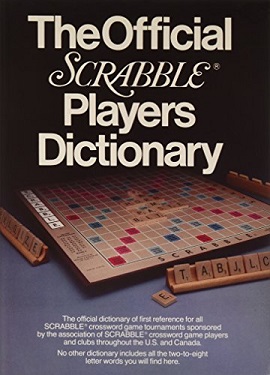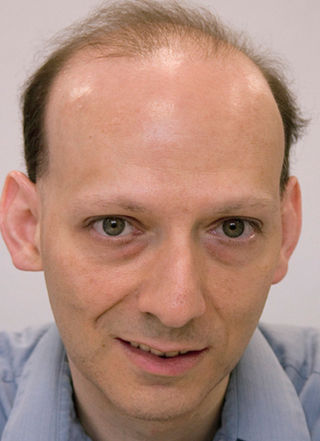External links
| Game elements | |||||||
|---|---|---|---|---|---|---|---|
| Organisations |
| ||||||
| People | |||||||
| Competitions |
| ||||||
| Media & books | |||||||
| Predecessors | |||||||
| Variants & spin-offs |
| ||||||
English-language Scrabble is the original version of the popular word-based board game invented in 1938 by US architect Alfred Mosher Butts, who based the game on English letter distribution in The New York Times . The Scrabble variant most popular in English is standard match play, where two players compete over a series of games. Duplicate Scrabble is not popular in English, and High score Scrabble is no longer practised.
Although English is a worldwide language, the official list of allowable words and some tournament rules differ between territories.
The preeminent Scrabble association in North America is NASPA Games (formerly North American Scrabble Players Association), which has sanctioned official clubs and tournaments since 2009, taking this role over from the National Scrabble Association.
Tournaments range from one-day tournaments of less than 10 rounds to the North American Scrabble Championship, which lasts 5 days and 31 rounds.[ citation needed ] Larger tournaments can also carry significant prize money. The official lexicon is the NASPA Word List. When a player challenges a word, if the word is not in the lexicon it is removed from the board with a score of zero. If the word is in the lexicon, the player who challenged the word loses a turn.
Scrabble clubs meet on a regular basis, usually weekly or biweekly at the same venue. Players usually play a smaller number of games than they would play at a tournament.
Match-play Scrabble is also practised at tournaments and clubs in the UK. Tournaments follow a similar structure to American ones, usually at least six games. Weekend tournaments where players play 12 to 16 games are not uncommon. The Association of British Scrabble Players sanctions official tournaments with official ratings, which range from about 200 to about 50. The official lexicon is Collins Scrabble Words (CSW19). [1] In contrast to American tournaments, players do not lose a turn if they challenge a valid word. Instead the other player gains points, usually five per challenged word. This means more words are challenged than in North American play.
There are only Scrabble competitions for primary and secondary school students in Hong Kong. Inter-School competitions are held by companies and organisations such as Mattel and Broadlearning. In May 2015, Hong Kong Student Scrabble Players Association organised the Inter-School Scrabble Championship. Some schools also organise invitational Scrabble competitions every year.
Many countries have small English-language Scrabble associations. 23 countries have been represented at the World Scrabble Championship, including some where English is not an official language, such as Romania, Thailand and France. Other countries that do not use the Latin script also may play in English if the language is not suitable for Scrabble, such as Japan.
The largest tournament in the world, by number of players, is Thailand's English-language Brand's Crossword Game King's Cup, which draws as many as 8,000 players. [2]

Scrabble is a word game in which two to four players score points by placing tiles, each bearing a single letter, onto a game board divided into a 15×15 grid of squares. The tiles must form words that, in crossword fashion, read left to right in rows or downward in columns and are included in a standard dictionary or lexicon.
The National Scrabble Association (NSA) was created in 1978 by Selchow & Righter, then the makers of Scrabble, to promote their game. It coordinated local clubs and Scrabble tournaments in North America, including the National Scrabble Championship, until 2009. The last director was John D. Williams, who is co-author of the book Everything Scrabble.
Collins Scrabble Words is the word list used in English-language tournament Scrabble in most countries except the US, Thailand and Canada. The term SOWPODS is an anagram of the two abbreviations OSPD and OSW, these being the original two official dictionaries used in various parts of the world at the time. Although the two source dictionaries have now changed their respective titles, the term SOWPODS is still used by tournament players to refer to the combination of the two sources. There has not been any actual hard-copy list produced called SOWPODS, although the current Collins Scrabble Words, or CSW, is in effect the full SOWPODS list by a different name.
The Scrabble Players Championship is the largest Scrabble competition in North America. The event is currently held every year, and from 2004 through 2006 the finals were aired on ESPN and ESPN2. The 2023 event was held in Las Vegas from July 15–19, 2023, with Joshua Sokol emerging as champion.

Francophone Scrabble, or French-language Scrabble, is played by many thousands of amateurs throughout the world and the Fédération internationale de Scrabble francophone has more than 20,000 members. Just as in English, points are scored by playing valid words from the lettered tiles. In French there are 102 tiles - 100 lettered tiles and two blanks known as jokers. The official word list for Francophone Scrabble is L'Officiel du jeu Scrabble.
The Internet Scrabble Club (ISC) is a website that allows players around the world to play Scrabble through a web interface. Previously, one had to download software, called Wordbiz, to play, but Wordbiz is no longer supported.
In the game of Scrabble, a challenge is the act of one player questioning the validity of one or more words formed by another player on the most recent turn. In double challenge, if one or more of the challenged words is not in the agreed-upon dictionary or word source, the challenged player loses her/his turn. If all challenged words are acceptable, the challenger loses his/her turn.
Bingo is a term used in North American Scrabble for a play in which a player puts seven tiles on the board in a single turn. Mattel, the game's manufacturer outside North America, uses the term bonus to describe such a word. In French, it is called a scrabble. A player who does this receives 50-point bonus. The calculation of the bonus varies between the Hasbro and Mattel versions of the game, with the bonus applied before double- and triple-word scores multipliers in the Hasbro rules and after in the Mattel rules.
NASPA Word List is the official word authority for tournament Scrabble in the USA and Canada under the aegis of NASPA Games. It is based on the Official Scrabble Players Dictionary (OSPD) with modifications to make it more suitable for tournament play. Its British and international-English counterpart is Collins Scrabble Words.

The Official Scrabble Players Dictionary or OSPD is a dictionary developed for use in the game Scrabble, by speakers of American and Canadian English.

Joel Sherman, nicknamed "GI Joel", is a top American Scrabble expert and former world champion. He is chronicled in Stefan Fatsis's book Word Freak, in Eric Chaikin's film Word Wars, and in Scott Petersen's film Scrabylon. He is also mentioned in Collins Gem's reference book. He was born in The Bronx, New York, and is an alumnus of the Bronx High School of Science.

Jim Kramer won the 2006 United States Scrabble Open in Phoenix, Arizona. Kramer has competed in 15 U.S. championship Scrabble tournaments and has represented the U.S. at the World Scrabble Championships six times. Before winning the 2006 USSO, he had top-ten finishes in the national championships three times, in 1998, 2000, and 2005. His fifth-place finish at the 2003 World Championship (WSC) was the highest by any North American player that year. He finished third in 2001.

Brian Cappelletto is a Scrabble player who represents the United States in international competition. He was the runner-up at the inaugural World Scrabble Championship in 1991 and won the event in 2001. He also won the American National Scrabble Championship in 1998, and was the runner-up in 2008 and 2010.
Tile tracking is a technique most commonly associated with the game of Scrabble and similar word games. It refers to the practice of keeping track of letters played on the game board, typically by crossing letters off a score sheet or tracking grid as the tiles are played. Tracking tiles can be an important aid to strategy, especially during the endgame when there are no tiles left to draw, where careful tracking allows each player to deduce the remaining unseen letters on the opponent's final rack. The marking off of each letter from a pre-printed tracking grid as the tiles are played is a standard feature of tournament play.
The first World Youth Scrabble Championships were held in Wollongong, Australia 2006. Competitors from Australia, Bahrain, Canada, England, Hong Kong, India, Indonesia, Kenya, Kuwait, Malaysia, New Zealand, Nigeria, Oman, Pakistan, Philippines, Qatar, Singapore, South Africa, Sri Lanka, Thailand, Trinidad and Tobago, United Arab Emirates and United States have competed in the annual tournament so far. WYSC is open to anyone under the age of 18 on 1 January of the year of each tournament. The tournament used to be held at the start of December but was brought forward to August for 2014. So far the WYSC tournament has been held in Malaysia five times, Australia twice, Dubai twice and the Philippines, Sri Lanka, and the United Kingdom once each.

Duplicate Scrabble is a variant of the board game Scrabble where all the players are faced with the same board and letters at the same time and must play the highest scoring word they can find. Although duplicate is rarely played at competition level in English, it is the most popular form of the game in French and is also played in other languages, such as Romanian and Dutch. The largest French Scrabble festivals can attract over 2000 people and some individual tournaments can count over 1000 participants per game. Although not popular for competitions in English, the computer game Scrabble 2005 contains a duplicate version allowing up to 16 players to play on the same board at once. It was also used on the UK TV game show TV Scrabble as one of the rounds.

Nigel Richards is a New Zealand–Malaysian Scrabble player who is widely regarded as the greatest tournament-Scrabble player of all time. Born and raised in New Zealand, Richards became World Champion in 2007, and repeated the feat in 2011, 2013, 2018, and 2019. He also won the third World English-Language Scrabble Players’ Association Championship (WESPAC) in 2019.
The French World Scrabble Championships is an annual Scrabble tournament that takes place in a different French-speaking country every year. Created in 1972 by Hippolyte Wouters, it was the first of the three World Scrabble Championships to be created, with the English version being created in 1991 and the Spanish version being created in 1997.

NASPA Games, formerly known as North American Scrabble Players Association (NASPA), is a nonprofit organization founded in 2009 to administer competitive Scrabble tournaments and clubs in North America. It officially took over these activities from the National Scrabble Association (NSA) on July 1, 2009. As of July 31, 2021, the organization is no longer associated with the North American owner of the SCRABBLE® trademarks, Hasbro, Inc.
The World English-Language Scrabble Players' Association (WESPA) is the overarching global body for English-language national Scrabble associations and similar entities.